From Brooklyn To Staten Island To Brooklyn: Abdullah Akl Just Wants To Make A Difference

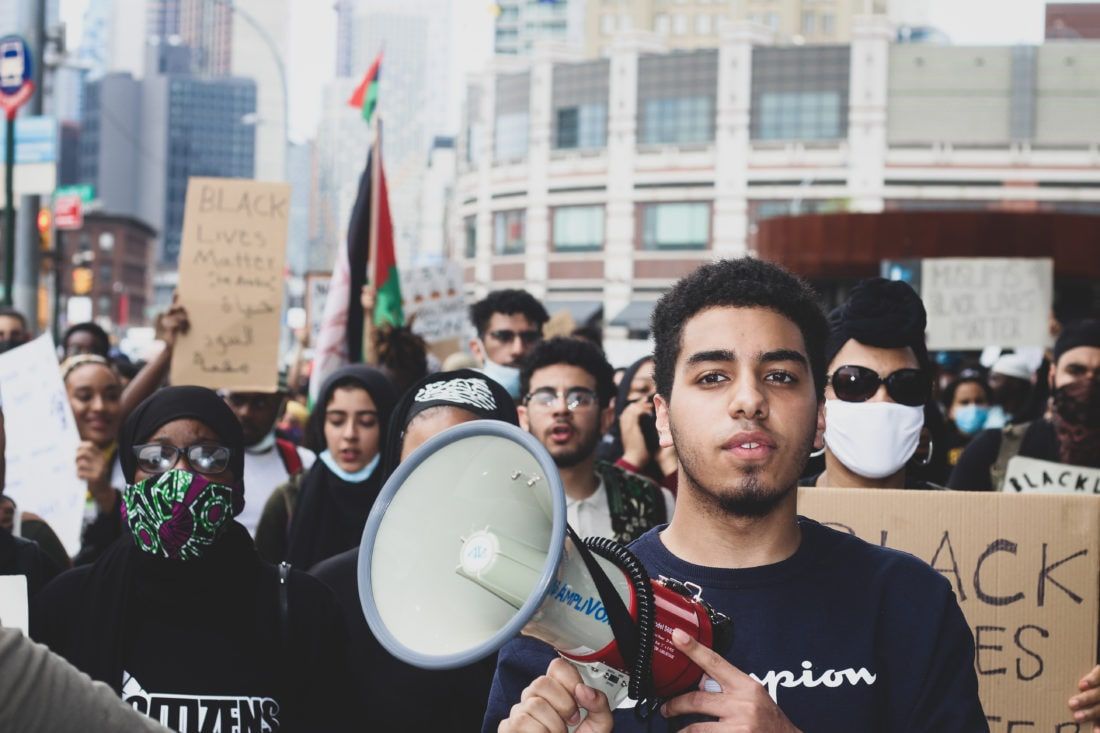
BROOKLYN – Abdullah Akl is an 18-year-old Egyptian-American. He was born and raised in Brooklyn and moved to Staten Island a few years ago. He used to say the N-word when he hung out with his friends. And then, he stopped. He educated himself, he said. Now, he holds a megaphone, perches himself on his friend’s shoulders, and leads chants of Black Lives Matter. Education is key, he said.
Even though Akl currently lives on Staten Island, he is in Brooklyn about 95% of the year. “Home is just a quick hotel to go to sleep, do some work, and get back to Brooklyn,” he said. When we asked which was the better borough, he laughed. “My answer will always be the same. It’s Brooklyn all the way. I will move back the first chance I get.”
Brooklyn is where a lot of his work is based. It is where he has been attending Black Lives Matter protests, helping to organize some of them, demanding an end to police brutality. The most recent protests he attended were the Muslims Against Police Brutality and the Jummah prayer at Barclays Center. The energy at both was unbelievable, he recalled.
“We weren’t expecting honestly this kind of turnout. For the Friday Jummah, we put out the flier on Thursday,” he told Bklyner. “It was really short notice and we weren’t expecting that people would be coming out like this. But the amount of support Muslims had for this matter really showed unity.”
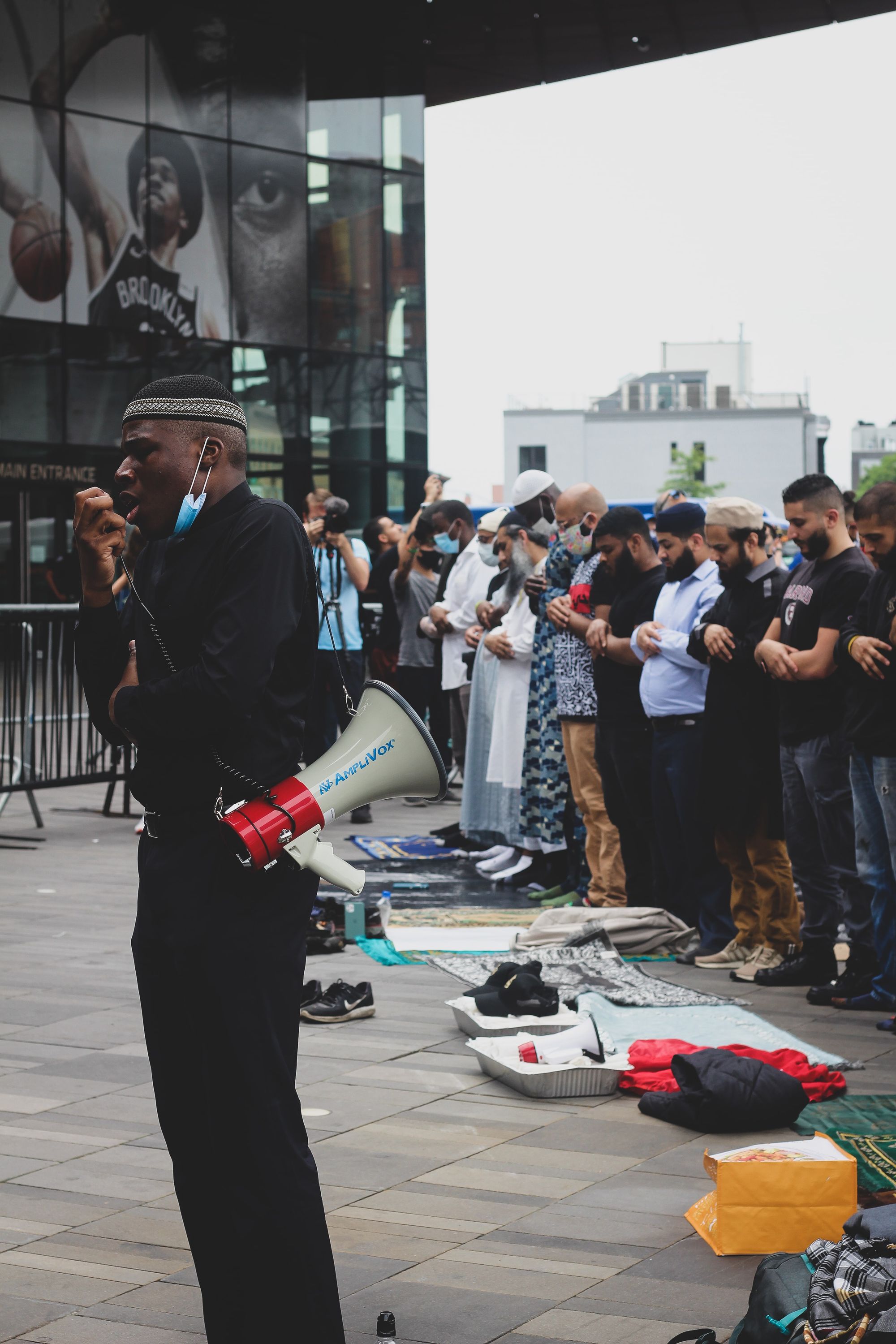
The matter he was referring to is racism, and it also exists within the Muslim community. For example, there is a term some Arabs use when referring to Black people. The word is derogatory and its literal translation is “slave.” According to Akl, to address racism, Muslims need to be educated.
“A huge part of it is misinformation. People don’t know their Muslim history very well. If they did, they would never treat a Black Muslim differently,” he said. “The word that Arabs use is disgusting. It’s almost as equivalent to using the N-word. So, I think if Muslims educate themselves and look at religion more, they would realize that these kinds of words and these actions against Black people, specifically Black Muslims, are not tolerable.”
He gave himself as an example.
“I’ve definitely said the N-word in the past and I look at myself now and understand how much it really means,” he said. “Growing up, many people would just be like ‘Well, Black people say it too, so what’s wrong with me saying it?’ But the history behind that word, what that word really means, speaking to some of my Black friends about that word, it made me realize how much of a hurtful word it is.”
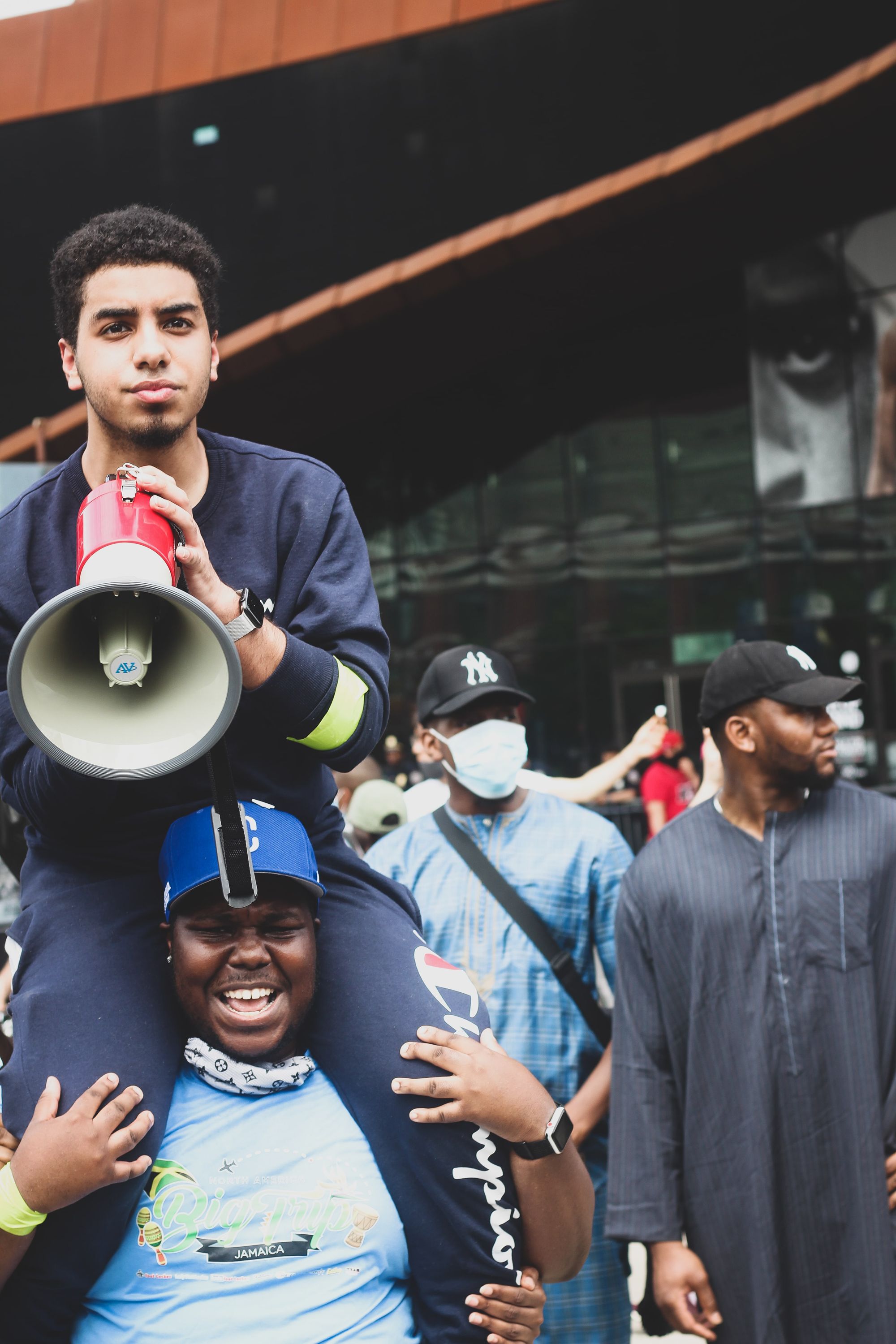
Two nights ago, Akl started a petition on Change.org titled, “Abolish Qualified Immunity.” He believes the police should face consequences for their actions and that there should be accountability.
“I’ve seen many people arrested right in front of me and they weren’t doing anything that would get them arrested in that kind of way. They are humiliated and thrown to the floor,” he said. “And seeing all those pictures going through social media, I asked myself, would they throw someone to the ground if they were protesting peacefully if they knew there was going to be accountability?”
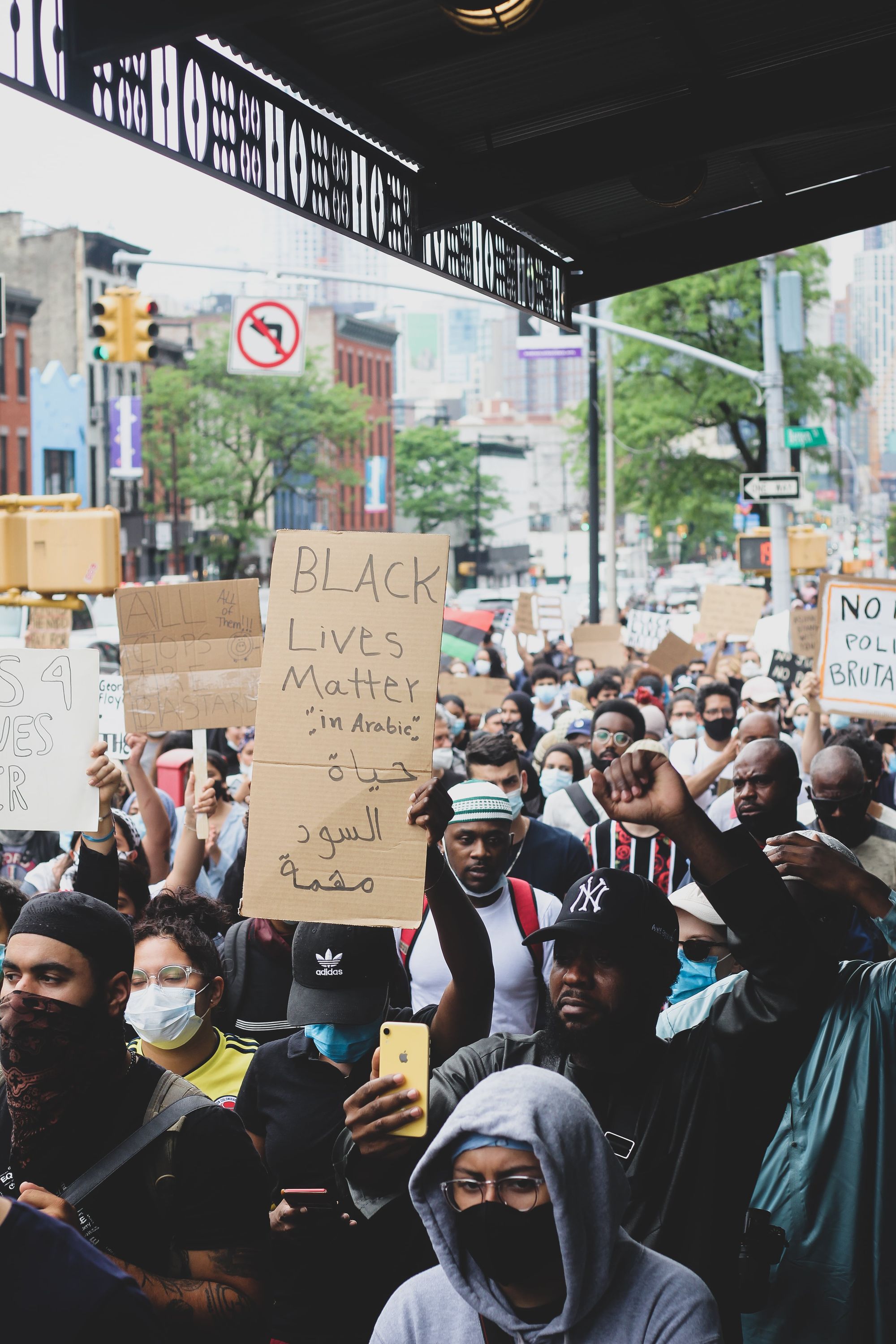
Akl believes that along with accountability, the police should also be defunded. Because by defunding the police, that money can go elsewhere. Like youth engagement, minority communities, and mental health resources, for example.
“Why is that someone comes up with a gun to de-escalate a problem? Defunding the police could give us a huge opening to take that money for other places where we can engage youth and have people more aware of problems.”
Youth engagement is something that is particularly important to Akl. Since August of 2019, this young man has been the Child-Friendly Cities Initiative (CFCI) ambassador at UNICEF. Basically, he spends his time speaking to U.S. officials to try and make cities across America more child-friendly. What does he mean by child-friendly? A city that is livable for children and a city where the voices of the youth are heard.
“Yes, your city might not have as much pollution. Yes, your city might have a lot of parks, but if your city isn’t listening to the youth, isn’t listening to the children, and isn’t having them a part of the implementation process, then you wouldn’t be able to get that child-friendly city certification from UNICEF,” he said. As part of his role, he traveled to Germany in October and met with other young ambassadors from all over the world. He came back with ideas on how to implement such measures in the U.S. So far, he and his team have worked on getting Houston to becoming the first child-friendly city in America. The next place they want to make child-friendly? Brooklyn.
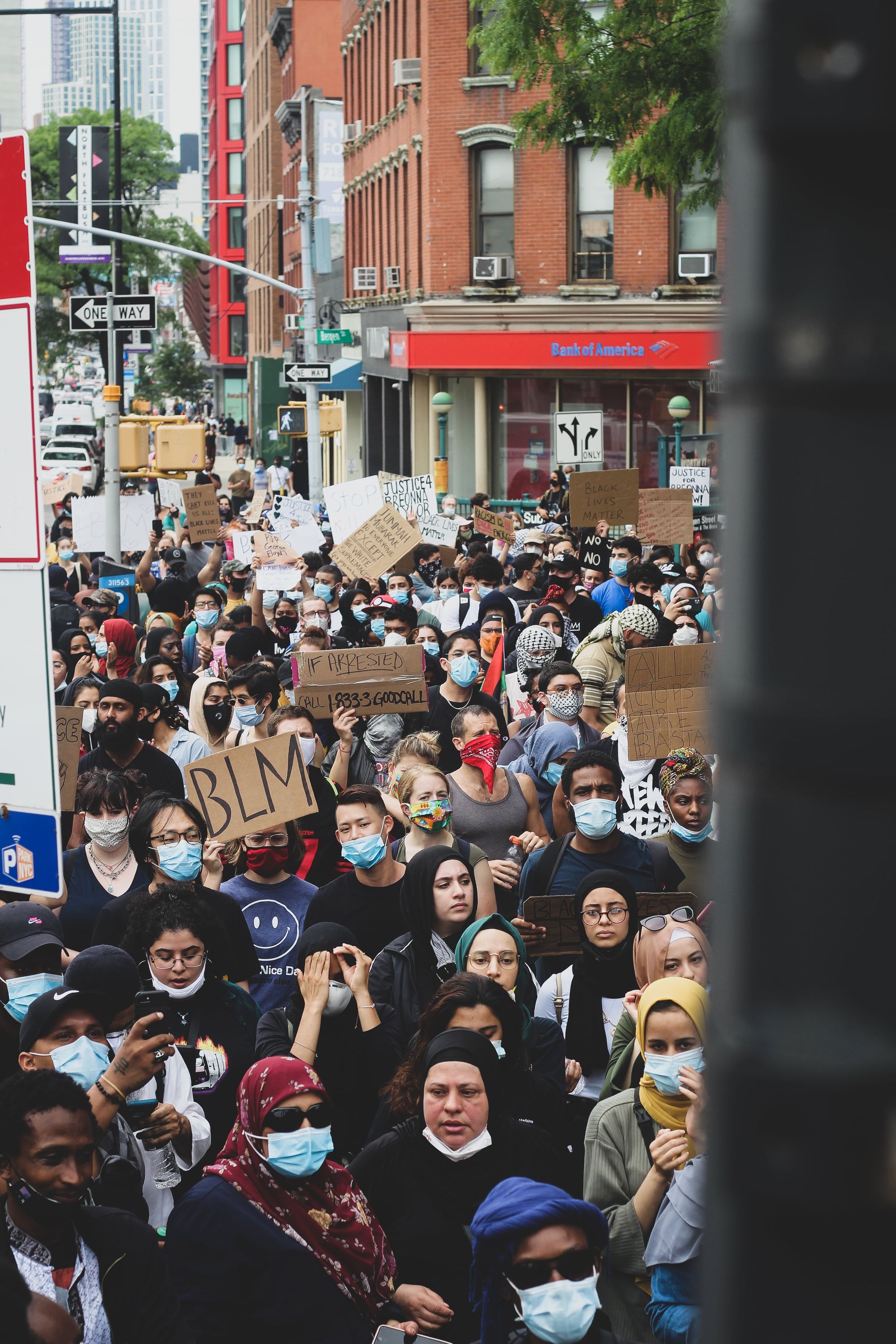
For Akl, his faith is an integral part of his life. It is what grounds him and what gives him structure.
“There are so many misconceptions about being a Muslim nowadays, that it is no longer something you can stay quiet about,” he said. “You have to show people who you are as a Muslim. That Muslims are doctors. That they are lawyers. There are Muslims that believe in politics. There are Muslims that care about everything.”
Akl is headed to Long Island University in the Fall for a degree in Political Science and hopes to go to law school after that. In the future, he wants to run for office.
“I feel like there are a lot of odds against me. I’m trying to get ahead or at least equal to where a lot of people are. For example, if I were to compare myself to a white boy going to Harvard University, the odds would be with him running for office and getting a lot of traction,” he said. “Starting young and getting those connections from a young age means a lot to me because we need the Muslim representation and we don’t have many Muslims in politics who are able to listen to these communities.”
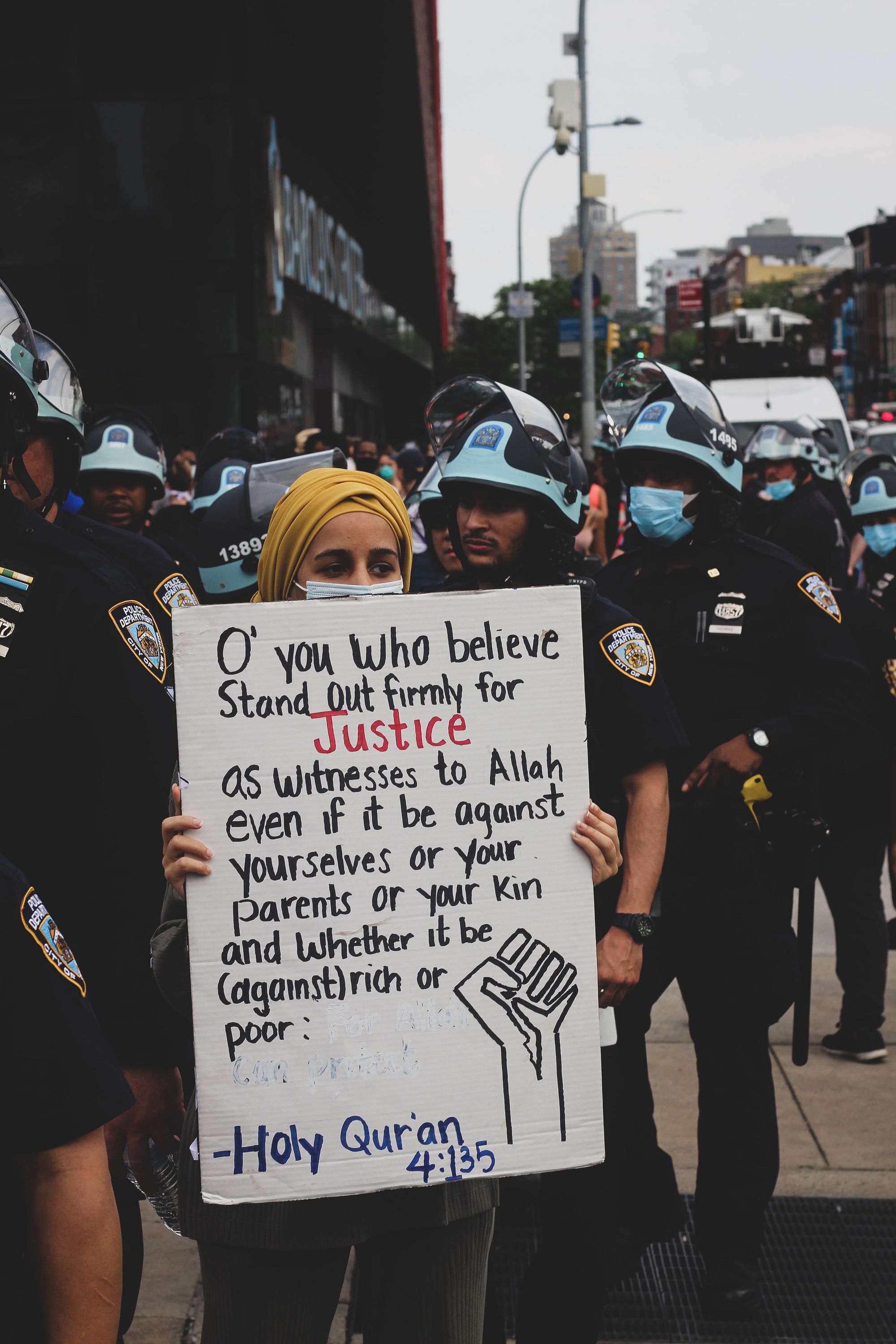
Last summer, Akl’s older sister, Mariam, passed away. It was at that moment when he realized that if he stopped everything that he was doing, it would be ok. But it wouldn’t have been what his sister wanted.
“No one would look at me and say anything if I had decided to step away from the work I was doing. Everyone would understand,” he said. “But then I used that as a motivation to keep going and used that to make me stronger. That when another obstacle knocks me down, I’d keep going. If I was able to make it through that, then I can get through everything.”
Mariam “100%” influenced who Akl is as a person, he said. She would push him to take action when something was wrong. She would tell him, ‘You speak out, even if no one is with you,’ Akl recalled.
“Like if you’re the only one out there and you’re yelling Black Lives Matter, then you can’t stop doing that even if you are the only one, because justice is justice even if no one is with it,” Akl said.
There is a lot that gives Akl hope. Like the small changes he sees every day. To him, that is hope.
“I see hope in the youth. The youth is going out there more. These protests are being filled with the youth. It’s not just the older uncles anymore,” he said. “I know this generation has so much power and energy. And at the same time, we have the knowledge of our elders. And that combination– where we learn from our elders and combine it with our energy– will achieve literally anything.”
All the photos were taken by Omar Ali. He’s a new talented photographer and doesn’t yet have a website, but you can view his photos on his Instagram under TheEgyptianAladdin.



